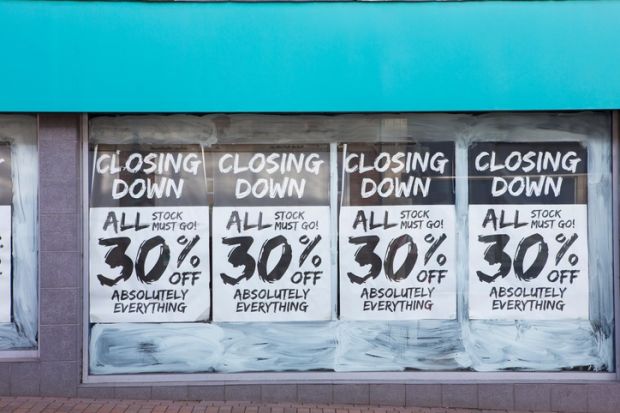The “refashioning” of the British high street in recent times has been remarkable. Several household names have entered administration or face rescue from opportunistic investors. It may appear to be a tale of unrelieved doom.
But the UK continues to be a nation of shoppers. The point is that consumer behaviour has evolved as the options of where and how to shop have multiplied. What satisfied 20 years ago no longer cuts it, particularly given the wider changes to the ways in which we interact – with each other, organisations and government.
So, what relevance does this have for universities? As significant employers, we are, like the major retailers, fixtures of local communities. We bring students into towns. We are, metaphorically, the anchor tenants in local shopping centres. And the demand for our product is fundamentally sound. People need the skills to get those aspirational jobs, to secure their status in a knowledge-based economy.
However, the majority of universities operate in a manner and form akin to that of the department store. We offer a broad product range under one roof. You want sociology, sir? That will be the second floor. Looking for business, madam? It’s in the basement.
We have sprawling, costly and often historic premises, with significant borrowings to cover costs of improving them. We have legacy back office and support systems that are difficult to update. We are traditional in the way that we operate, and there is nothing particularly memorable about the overall experience that we offer.
This is not a good place to be. The combination of weak and confused positioning and high sunk costs offers a significant opportunity for new competitors with clear positioning and different cost structures. Incremental improvement to do better than other similar operations does not get us out of this bind. The challenge is to deal with category killers that have fundamentally different operating systems and assumptions.
But all is not lost. Some stores are thriving among the chaos. Whether on the high street or online, there are players, new and established, delivering value and attracting consumers. The supermarket Lidl offers a limited range but low prices with minimalist service. The clothing retailer Next offers its integration of bricks and clicks. Zara brings fashion from catwalk to store at speed.
These are very different routes to success, but all share a strong brand identity, clarity of value proposition, operational agility and relentless use of data. It is difficult to imagine such statements currently being made in relation to many universities.
However, pockets of evidence suggest that the department store trap is not inescapable. On positioning, take Loughborough University, with its relentless focus on student sport and competitive ethos, or the University of Strathclyde, with its emphasis on applied disciplines and close engagement with practice. On market reach, take Coventry University, with its distinctive operating structure and varied delivery channels, or my own institution, Lancaster University, with its international campus operations and its recent partnership with University Academy 92: a new for-profit institution set up by ex-Manchester United footballers.
In all these cases, there is a recognition and exploitation of distinctive capabilities. However, even here, the extent to which such strategic focus permeates throughout an institution is questionable. Rather, it sits atop an unconvinced academic base.
Ultimately, success depends on that focus percolating throughout the university, allowing us to fundamentally question our underlying operating models and our core cost structures. Challenging the nature and importance of research, the way that teaching is delivered and the staffing mix – these are the really contentious yet critical areas to address.
It is complacent to argue that online education has been around for years and that new providers, feted by governments, have made only a marginal impact on universities. The equivalent pressures were around in retail for years, too, before the “closed” signs started to go up. It was the cumulative effect of these pressures over time that took their toll. Those universities that do not react early to those pressures could well share the fate of Debenhams and House of Fraser.
Angus Laing is dean of Lancaster University Management School.
后记
Print headline: Innovate or liquidate




